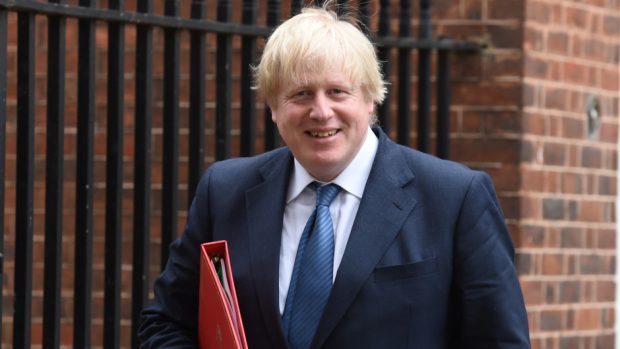They used to say politics was showbusiness for ugly people. Not any more.
Not just because the politicians have gained appreciably in attractiveness, for they have.
Watch any of the old election programmes on BBC Parliament and compare those doughy trade union types getting elected for Labour and the toff Tories with today’s intake that includes the appropriately named Priti Patel or Chuka Umunna, who wouldn’t look out of place modelling for C&A.
More pertinently, the stars of showbusiness now regularly dirty themselves in politics.
For example, Boris Johnson inexplicably and embarrassingly compared himself to the Incredible Hulk before his last trip to Brussels. The analogy was weak to begin with and made even more so because the Hulk’s arch-enemy was not the prime minister of Luxembourg.
But the whole nonsense was perfectly punctured when Mark Ruffalo, who plays the Hulk in the multi-billion-pound Marvel superhero films, took to Twitter to mock Johnson.
The PM had the same problem when he said his favourite movie scene came from The Godfather. The comments were brought to the attention of the film’s director Francis Ford Coppola, who pointed out that the unflinching gangster trilogy is not really meant as any sort of recipe for how to live, let alone govern.
There are commonalities among the two incidents.
Firstly there’s Boris Johnson saying stupid things. He’s only been PM for a matter of weeks, but we are used to that now. His latest effort was some nonsense claiming the UK can’t sell socks to America. It’s as if he has a random generator that throws up unrelated products and places. Socks to America follows kippers to Europe – expect him to rail against the injustice of being unable to sell barbecue charcoal to Djibouti in his conference speech next week (if he gets to make one!).
The more important thread running through these episodes is the internet. It’s social media that’s allowed big screen stars to respond when politicians take their name in vain.
If Edward Heath had commented on the Godfather on its release in 1972 the chances Coppola would hear about it would’ve been null. The internet brings us all closer together, even British buffoons and Hollywood legends.
But unfortunately the internet’s impact on politics does not end there. And it’s this time of year – conference season – that demonstrates the fundamental change the web has wrought.
Party conferences are exclusively attended by oddballs. Joining a political party marks you out as unusual, spending good money to hang around a faded seaside town or an anonymous city hangar in the hope of getting near Jacob Rees-Mogg or Emily Thornberry is downright weird. Such people had little influence, until the internet age. Now, they pull the strings.
Boris Johnson has always been the star turn at Tory conference but he was ultimately a sideshow. Until the membership put him centre stage.
David Cameron was accused of having contempt for his own party members. The fact that at the first opportunity they installed a chancer not just as the top Tory but in No 10 proves Cameron’s wariness was well founded.
And the internet makes it easier for party members to share their views, confine themselves to intellectual silos and convince themselves they’re right. The first time I attended a Conservative conference an activist joined my table in the bar uninvited and proceeded to explain how women belong in the kitchen. He was despatched quickly and firmly. Back then he’d have to wait till the next year’s beano to hang out with like-minded types. Now he can do it every day online.
And while Conservative members now have the power to pick the PM, Labour members use theirs to keep their party out of power by slavishly backing an electoral liability as leader.
When Ed Miliband decided that with £3 and a click of the internet anyone could get involved in picking the Labour leader he handed inordinate influence to online crackpots.
A Labour veteran of my acquaintance used to talk about people with blue hair popping up at conference since Corbyn became leader.
He referred to them as being a bit like a wacky girlfriend, brought to the family home for dinner – you have to be polite and accommodate them but you know they won’t last.
With the two main parties answerable to their membership rather than the electorate, the Lib Dems are talked up as the centrist alternative. But they’re not immune.
Their bold policy of canning Brexit altogether should they get into power geed-up the members at their Bournemouth conference but it’s a plan that plays to the corners of the internet where nuance and compromise are dirty words.
Our age of extremes has been fuelled by the internet. It may have spread democracy but it’s also made politics more unmanageable.
